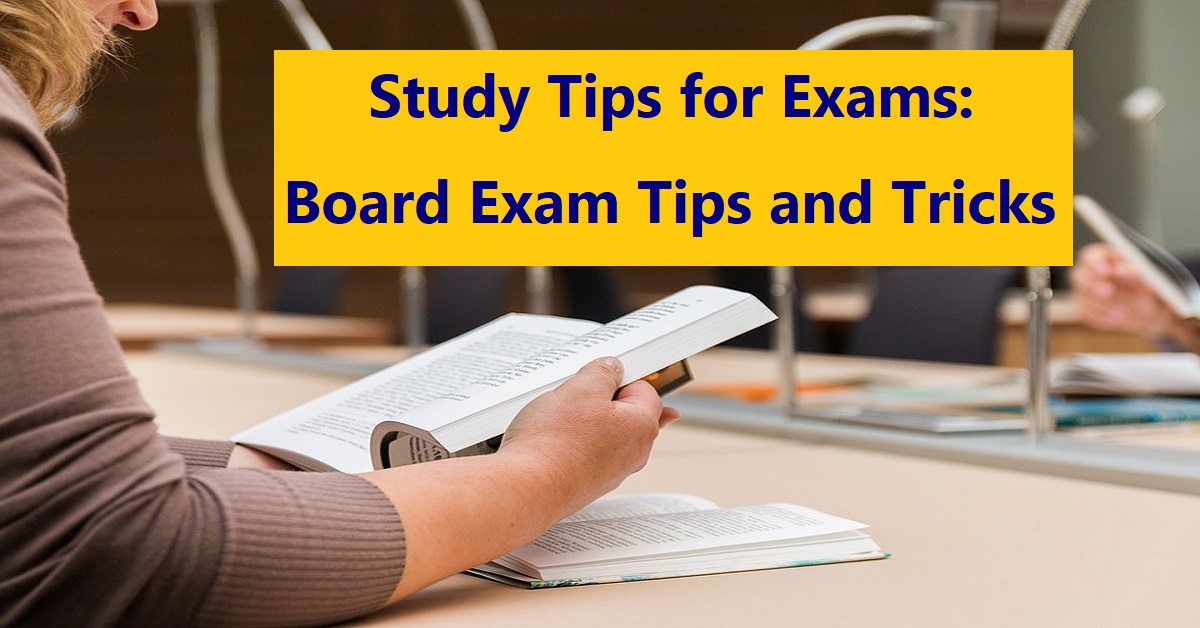
Effective Exam Preparation: Best Study Strategies and Test-Taking Tips
Preparing for exams can be stressful and overwhelming, but with the right strategies and techniques, students can perform well and achieve academic success. In this article, we will cover the best ways to prepare for exams, including effective study strategies, test-taking tips, and time-management techniques.
Effective Study Strategies for Exams
1. Create a Study Schedule: Creating a study schedule is essential to effective exam preparation. It helps you to organize your time and ensure that you cover all the topics before the exam. Set aside regular study sessions, and make sure you take breaks to avoid burnout.
2. Use Active Learning Strategies: Active learning strategies help you to understand and remember what you study. Examples of active learning strategies include taking notes, practicing problem-solving, and explaining the material to someone else.
According to a study by the University of Texas, students who used active learning strategies achieved higher grades than those who relied on passive learning strategies, such as reading and listening to lectures.
3. Organize Your Notes: Organizing your notes is another effective study strategy. Use headings and subheadings to group related information, and highlight key points for quick reference. Summarize your notes in your own words, and make sure you understand the concepts.
4. Practice, Practice, Practice: Practice is crucial to effective exam preparation. Practice answering past papers and sample questions, and get feedback from your teacher or tutor. It helps you to identify areas that need improvement and builds your confidence.
5. Join a Study Group: Joining a study group is a great way to stay motivated and learn from others. It provides an opportunity to discuss the material, ask questions, and get feedback. Make sure you choose a study group with like-minded individuals who share your goals.
Test-Taking Tips for Exams
1. Read the Instructions Carefully: Reading the instructions carefully is crucial to effective test-taking. Make sure you understand what the examiner expects from you, and follow the instructions accordingly. If you have any doubts, ask the examiner for clarification.
2. Manage Your Time: Time management is essential to effective test-taking. Make sure you allocate your time wisely, and don't spend too much time on any one question. If you get stuck, move on to the next question and come back later.
According to a survey conducted by the National Survey of Student Engagement, students who spend more time preparing for exams tend to earn higher grades than those who do not.
3. Answer the Easy Questions First: Answering the easy questions first helps you to build confidence and manage your time effectively. It also ensures that you don't miss any easy marks.
4. Use Your Resources Wisely: Make use of all the resources available to you, such as calculators, dictionaries, and formula sheets. Make sure you understand how to use them before the exam.
5. Stay Calm and Focused: Staying calm and focused is essential to effective test-taking. Take deep breaths, relax your muscles, and stay positive. Don't panic if you get stuck on a question, and don't let one bad question affect your overall performance.
Time Management Techniques for Exams
1. Prioritize Your Tasks: Prioritizing your tasks helps you to focus on what's important and avoid wasting time on trivial matters. Make a list of tasks in order of importance, and tackle the most important tasks first.
2. Take Regular Breaks: Taking regular breaks is crucial to effective time management. It helps you to recharge your batteries and avoid burnout. Take short breaks every hour or so, and do something relaxing, such as listening to music or taking a walk.
3. Get Enough Sleep and Eat Well: Getting enough sleep and eating well are essential to effective time management. Make sure you are well-rested and well-fed before an exam. Lack of sleep and poor nutrition can have a negative impact on your cognitive abilities, memory, and concentration. According to a study conducted by Harvard Medical School, sleep plays a critical role in memory consolidation, which is the process of converting short-term memories into long-term memories. Getting enough sleep can also help reduce stress and anxiety, which can affect your exam performance.
Eating a healthy and balanced diet is also important for effective exam preparation. Your brain needs proper nutrition to function optimally, and a balanced diet can provide the necessary nutrients. Avoid consuming too much caffeine or sugar, as they can cause jitteriness and a crash, respectively. Instead, opt for foods that are high in protein, complex carbohydrates, and healthy fats, such as nuts, whole grains, fruits, and vegetables.
Review and Revise Regularly:
Reviewing and revising material regularly is essential to effective exam preparation. Instead of cramming everything in at the last minute, it is important to review the material over a longer period of time. Regular review can help consolidate information in your memory and increase retention. It can also help you identify areas where you need to focus more attention.
To review effectively, break the material into manageable chunks and review a little bit each day. This will help you avoid becoming overwhelmed and retain information more effectively. Take notes and summarize the material to help you remember it better. Use flashcards or other memorization techniques to help you remember key concepts and definitions.
Conclusion:
Effective exam preparation requires a combination of effective study strategies, test-taking tips, and time management techniques. By creating a study schedule, using active learning strategies, practicing test-taking skills, getting enough sleep and eating well, and reviewing and revising material regularly, students can perform well on exams and achieve high grades. Remember, effective exam preparation is not just about studying hard, but also studying smart. With the right strategies and techniques, students can achieve academic success and perform well on their exams.
Study Tips


